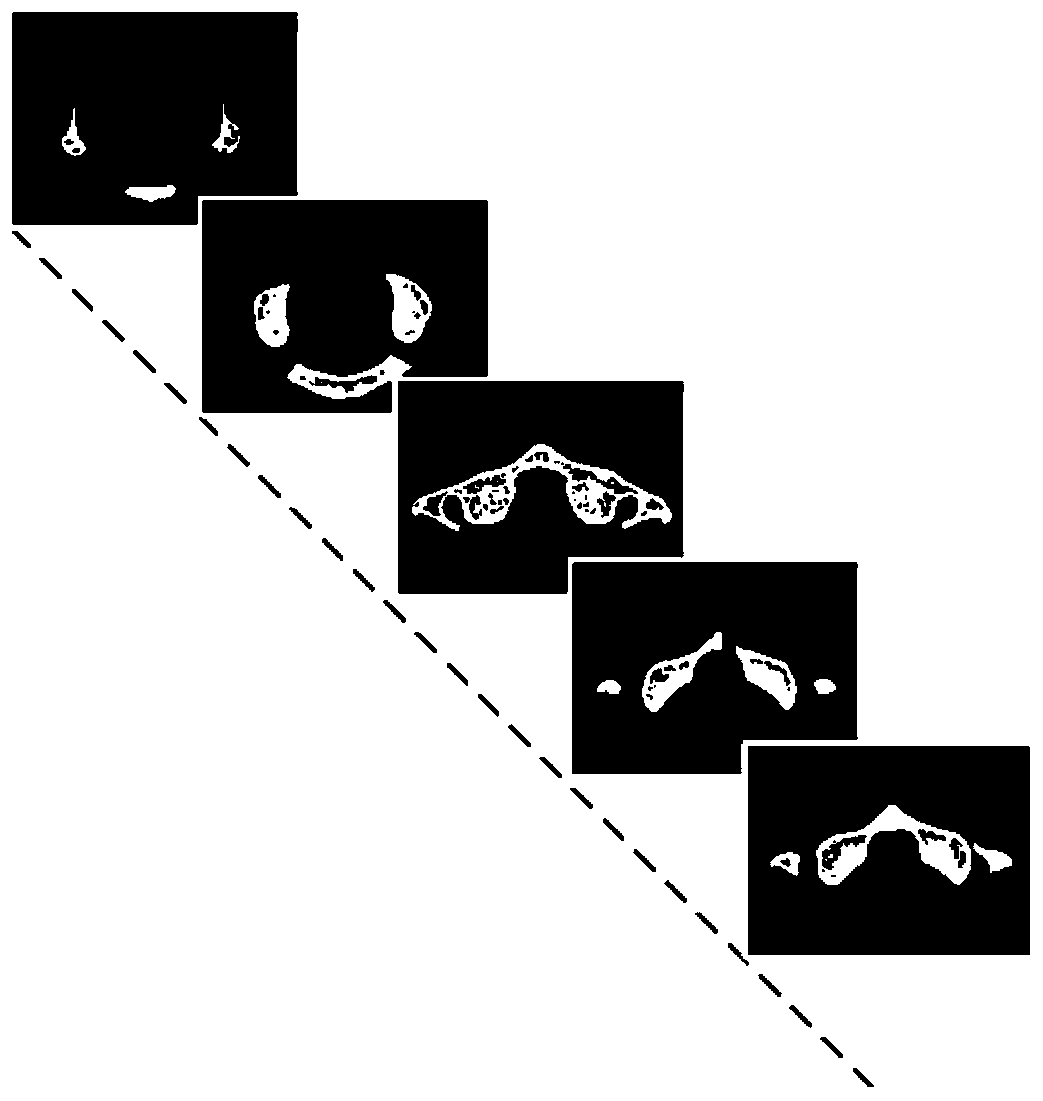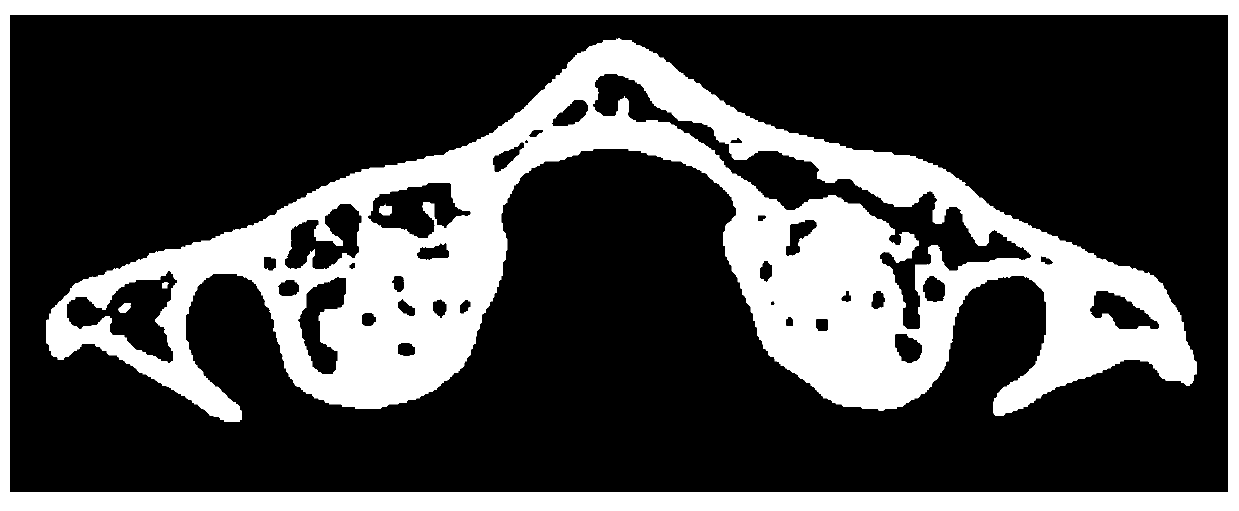A Mesh Model Adaptive Reconstruction Method for Skeleton CT Sequence Images
A technology of sequential images and mesh models, applied in the field of image processing, can solve the problems of dense meshes, topological connection errors, branching and multivariate matching, etc., and achieves the effect of ensuring discrete accuracy, ensuring mesh quality, and good surface smoothness.
- Summary
- Abstract
- Description
- Claims
- Application Information
AI Technical Summary
Problems solved by technology
Method used
Image
Examples
Embodiment Construction
[0037] figure 1 It is a flow chart of a method for adaptively reconstructing a grid model of bone CT sequence images, as shown in the figure: the present embodiment comprises the following steps:
[0038] S1: Multi-slice CT sequence images of bones, such as figure 2 As shown, sequentially extract each single-slice CT sequence image (see image 3 ) bone contour edge, refinement, connection, contour tracking, to obtain a single-pixel enclosed two-dimensional bone contour, such as Figure 4 shown.
[0039] S2: Transform the formed multi-layer 2D contour dataset into a 3D point cloud with normal vectors. combine Figure 5 and Figure 6 Instructions, the specific steps are as follows:
[0040] 1) Fill the inner image of the closed two-dimensional contour with the contour edge as a constraint, fill the connected area inside the contour edge with eight-way connectivity and fill it with white, and fill the connected area outside the contour with black to form a contour binary i...
PUM
 Login to View More
Login to View More Abstract
Description
Claims
Application Information
 Login to View More
Login to View More - R&D
- Intellectual Property
- Life Sciences
- Materials
- Tech Scout
- Unparalleled Data Quality
- Higher Quality Content
- 60% Fewer Hallucinations
Browse by: Latest US Patents, China's latest patents, Technical Efficacy Thesaurus, Application Domain, Technology Topic, Popular Technical Reports.
© 2025 PatSnap. All rights reserved.Legal|Privacy policy|Modern Slavery Act Transparency Statement|Sitemap|About US| Contact US: help@patsnap.com



